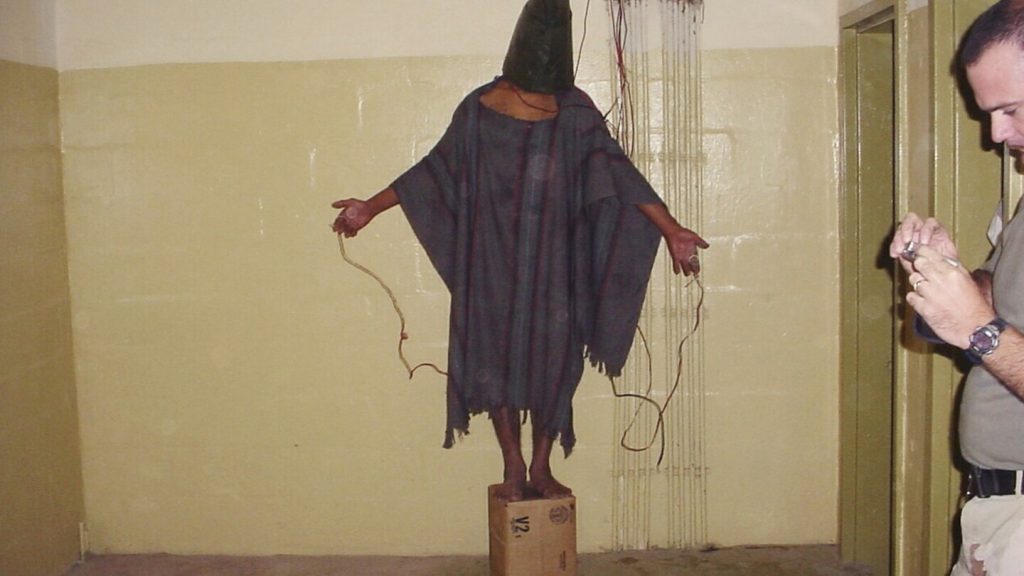Three survivors of abuse at Iraq’s Abu Ghraib prison are finally getting their day in U.S. court to hold the military contractor responsible for their mistreatment. The trial is set to begin in U.S. District Court in Alexandria and marks the first time Abu Ghraib survivors are able to bring claims of torture to a U.S. jury. The defendant, CACI, provided interrogators who worked at the prison and denies any wrongdoing, emphasizing that its employees did not abuse the plaintiffs. The plaintiffs seek to hold CACI responsible for setting conditions that led to their torture, citing evidence that CACI contractors instructed military police to mistreat detainees. Retired Army Gen. Antonio Taguba, who led an investigation into the Abu Ghraib scandal, is expected to testify.
The abuse at Abu Ghraib, as depicted in photos released in 2004, was shocking and horrific. The images showed naked prisoners stacked into pyramids, dragged by leashes, and subjected to various forms of torture. The plaintiffs in the case cannot be clearly identified in the infamous images, but they have described their experiences of sexual assault, beatings, electrocution, and other forms of mistreatment. CACI has denied responsibility for the abuse, arguing that the U.S. military set the conditions at Abu Ghraib and that its employees were not giving orders to soldiers. The case has been in litigation for 16 years, with CACI attempting multiple times to have it thrown out of court. The U.S. Supreme Court ultimately ruled in 2021 that the case should proceed to trial, leading to the upcoming proceedings in Alexandria.
CACI has contended that the U.S. enjoys sovereign immunity against the torture claims, and therefore, CACI should have derivative immunity as a contractor. However, the U.S. District Judge ruled that the U.S. government cannot claim immunity for actions that violate international norms like torturing prisoners, thereby denying CACI derivative immunity. The upcoming trial is expected to include testimony from soldiers who were convicted in military court of directly inflicting the abuse. The government may present state secrets during the trial, which could impact the proceedings, as both sides have raised concerns about evidence being classified as such.
Of the three plaintiffs in the case, only one is expected to testify in person, while the other two will testify remotely from Iraq. Their reasons for being sent to Abu Ghraib are deemed irrelevant and will not be presented to jurors. All three were released after periods of detention without being charged with a crime. Judge Brinkema has emphasized that even if the plaintiffs were terrorists, it does not excuse the alleged conduct at Abu Ghraib. The trial is scheduled to last two weeks, and both parties will have the opportunity to present their arguments and evidence in court. The outcome of this trial could provide accountability for the survivors of Abu Ghraib and shed light on the role of military contractors in cases of detainee abuse.


